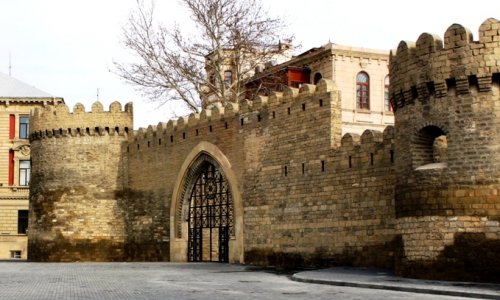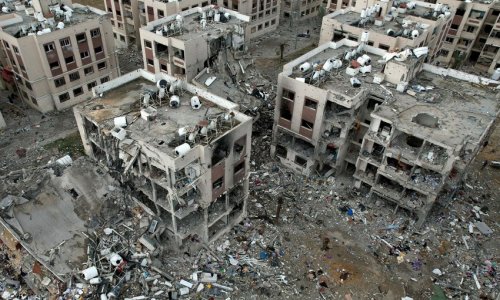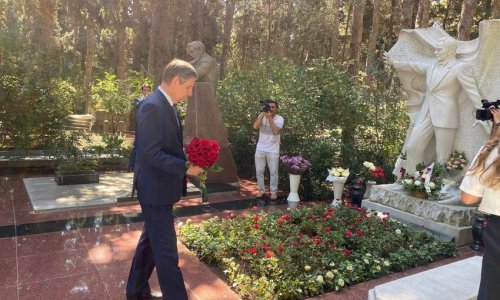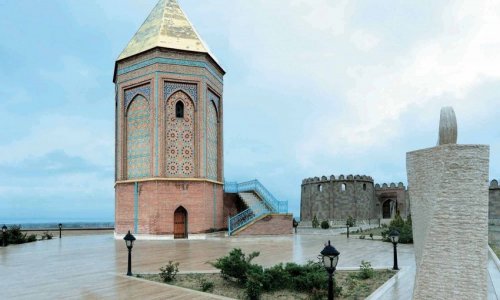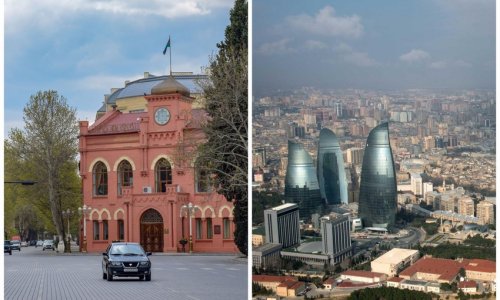Aydin Balayev
One of the main activities of Rasulzadeh in exile was rethinking and re-evaluation of the whole experience of state construction in Azerbaijan in the period of independence in 1918-1920. Meticulously analyzed were all the mistakes and shortcomings in the national government of that period. Rasulzadeh came to a conclusion that the leaders of the national movement did not pay too much attention when setting democratic norms and procedures in the country. In an effort to quickly build a democratic society, they often neglected the elementary requirements of national security.
Touching on this topic in the "Azerbaijan Republic" book published in Turkey in 1923, Rasulzadeh so characterized state control system in the period of independence: "The state completely supported the method of successive parliamentary system and the responsible ministry. Freedom of speech, press and assembly was fully guaranteed . In this regard, some critics, maybe, will point to the excessive liberalism showed in doing so. This political newborn was experiencing an organizational period, with, of course, a lot of notable errors. The largest of them is that strong government did not develop in that period. If in the name of unification of diverse opinions, along with the implementation of methods of persuasion, there were a few moves in the direction of coercion, it is possible that the outcome of the known events would have been different."
Of course, this does not mean that Rasulzadeh was disappointed at democratic principles, which, up to the end of his life, he considered the main condition of any society's development. He only warned against turning democracy into a goal just for itself. In the understanding of Rasulzadeh democracy was only effective means of liberation and development of spiritual and material forces of the nation, the establishment and consolidation of a viable state of Azerbaijan, and not vice versa. In other words, he just suggested not putting the cart before the horse, as is often the case was in ADR.
From this point of view, it is a rather remarkable article written in connection with the death of Jozef Pilsudski in 1935. Formally the article analyzes the political activity of Pilsudski, who Rasulzadeh calls "the greatest man of the Polish history" and "a great symbol of the resurrection of the Polish people." In fact, Rasulzade uses the example of Pilsudski and his specific actions aimed at creating a strong Polish state to analyze the errors made by the Azerbaijani leaders in 1918-1920. He draws particular attention to the fact that the movement for the liberation of Poland was started by Pilsudski in the early years of the twentieth century with the preparation of the "future staff for the Polish troops." Through these efforts, Pilsudski made "the Polish liberation movement, as it was, a militarized one", which made possible the creation of independent Poland.
Characterizing the first steps by Pilsudski after Poland regained independence, Rasulzade writes: "Poland primarily needed a strong army and sustainability of the government. Marshal Pilsudski was completely devoted to the task. It was unacceptable to subject the new state to hobbies of formal democracy and the parliamentary system game that could undermine the foundation of not only Poland, that had just released from prolonged captivity and had recently experienced chaos and anarchy, but even the most stable state. And with one blow, Marshal Pilsudski took all power into his own hands and started to create a machine of strong and stable government."
Given the bitter experience of 1918-1920. and in the interest of national affairs, for which discipline was the principle of paramount importance, Rasulzadeh tried to establish strict discipline and subordination in the emigre circles, owing to the harsh realities of the period, and , above all, the continuing intrigues of the Soviet secret police. This was despite the fact that stiffness vitally necessary in the circumstances of the period was frequently ignored or denied even among his close entourage. Thus, in one of his letters J. Hajibayli, without naming specific names, accused some colleagues in the ANC of "dictatorial behavior." There is no doubt that J. Hajibayli was referring to Rasulzadeh.
However, such criticism little worried Rasulzadeh, because for him there was only one goal - the revival of Azerbaijan and unified tactical actions to implement this objective. However, he knew that without achieving organic unity of the Azerbaijani expatriates there could be no question of the implementation of this task. Therefore, despite such accusations, Rasulzadeh kept tightly preventing any attempts to split the Azerbaijani expatriates, wherever they might come from.
Translation: Surkhay Murad
ANN.Az
"The biggest mistake of ADR was the lack of hard power" - M.E. Rasulzadeh
Culture
00:00 | 01.01.1982

"The biggest mistake of ADR was the lack of hard power" - M.E. Rasulzadeh
Follow us !


